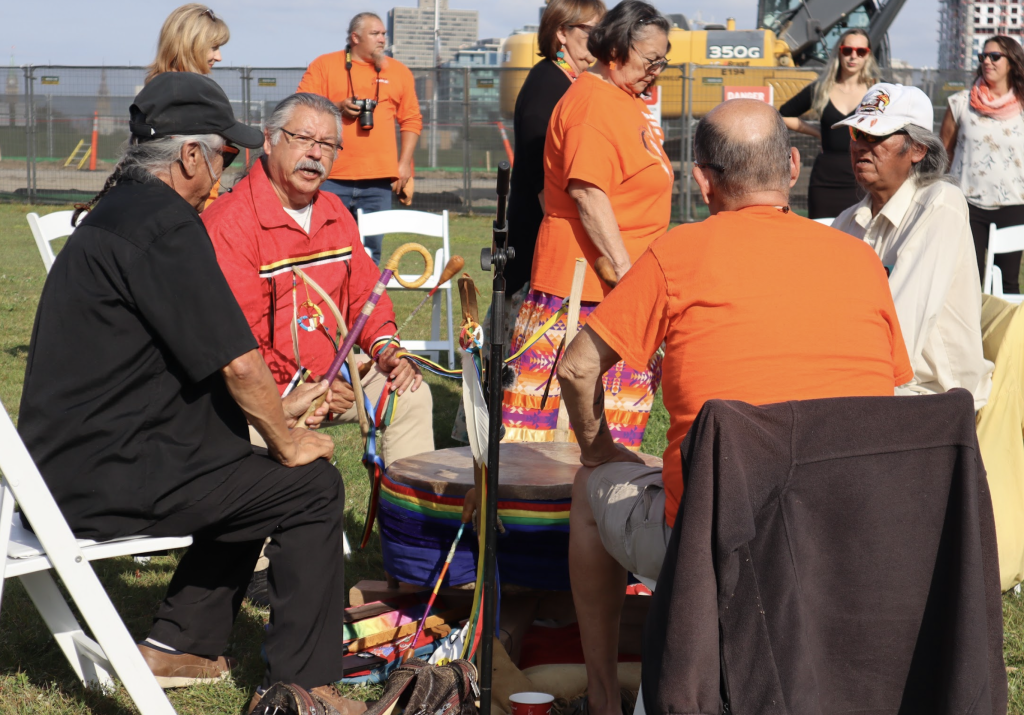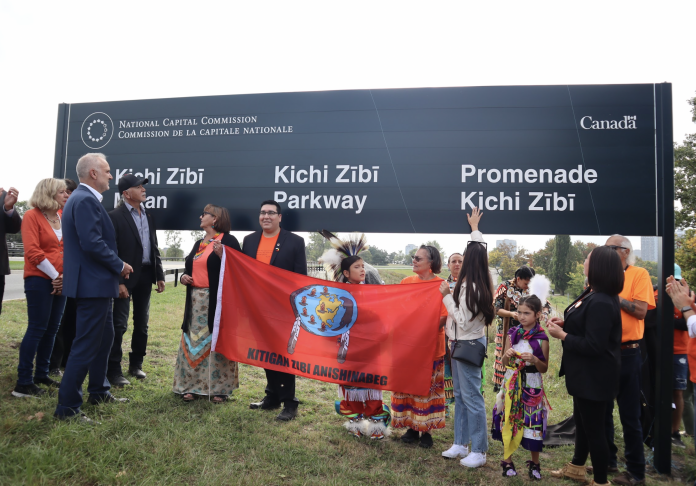By Charlie Senack
The Sir John A. Macdonald Parkway is officially no more.
The popular traffic thoroughfare has officially been named the Kichi Zibi Mikan Parkway which officially means “Great River Road” in Algonquin.
A ceremony was held near the Canadian War Museum to unveil the new signage on Sept. 29, a day before Truth and Reconciliation Day. Dozens of people were in attendance including former Indian Residential School survivors and their families.
“There was a real effort to bring our Algonquin partners together, to have conversations, to listen, and to determine what the appropriate name is,” said National Capital Commission CEO Toby Nussbaum. “This was very much an Algonquin-led process and I think it is glorious. [The name] I think reflects both the history and the geography of this historic site.”
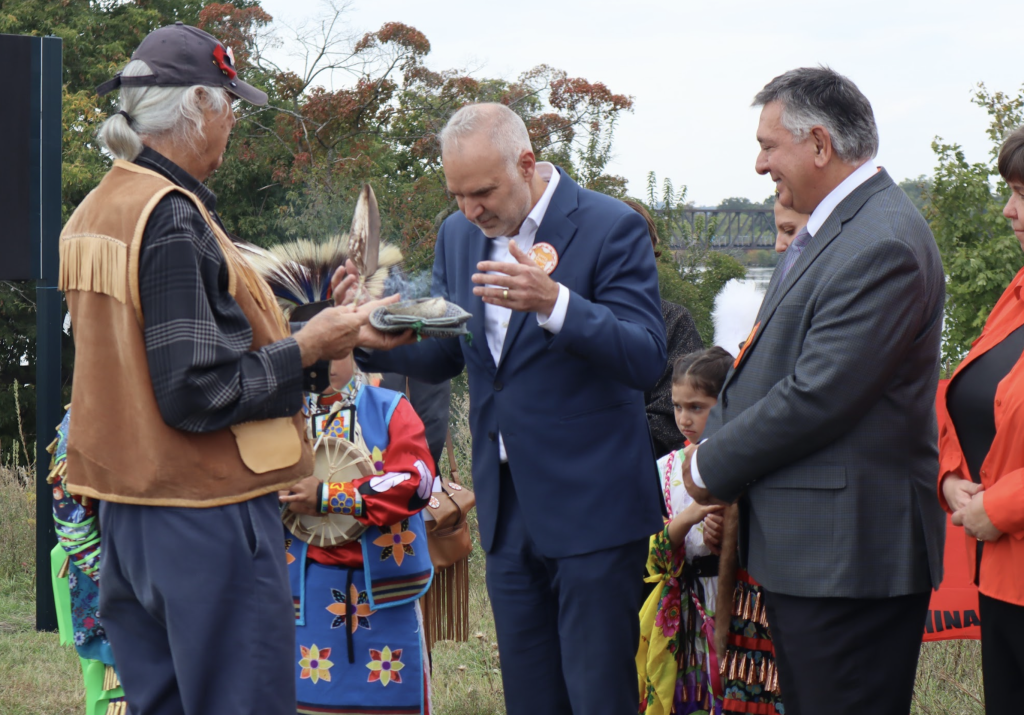
Since the Parkway first opened to traffic, it’s had multiple names. Originally known as the Western Parkway or Ottawa River Parkway, it was named after Sir John A. Macdonald, Canada’s first prime minister, in 2012 by the then-Conservative government, which wanted to “reflect” more of Canada’s history.
Public outcry started soon after and increased in recent years after the horrors of Canada’s former Indian residential school system started to be discussed. It is estimated that more than 4,000 Indigenous children in these schools died or went missing. Macdonald has been considered the main architect behind the system.
In June 2021, city councillors Jeff Leiper, Theresa Kavanagh, and Catherine McKenney wrote a letter to Prime Minister Justin Trudeau, requesting the Parkway be renamed due to its “harmful legacy.”
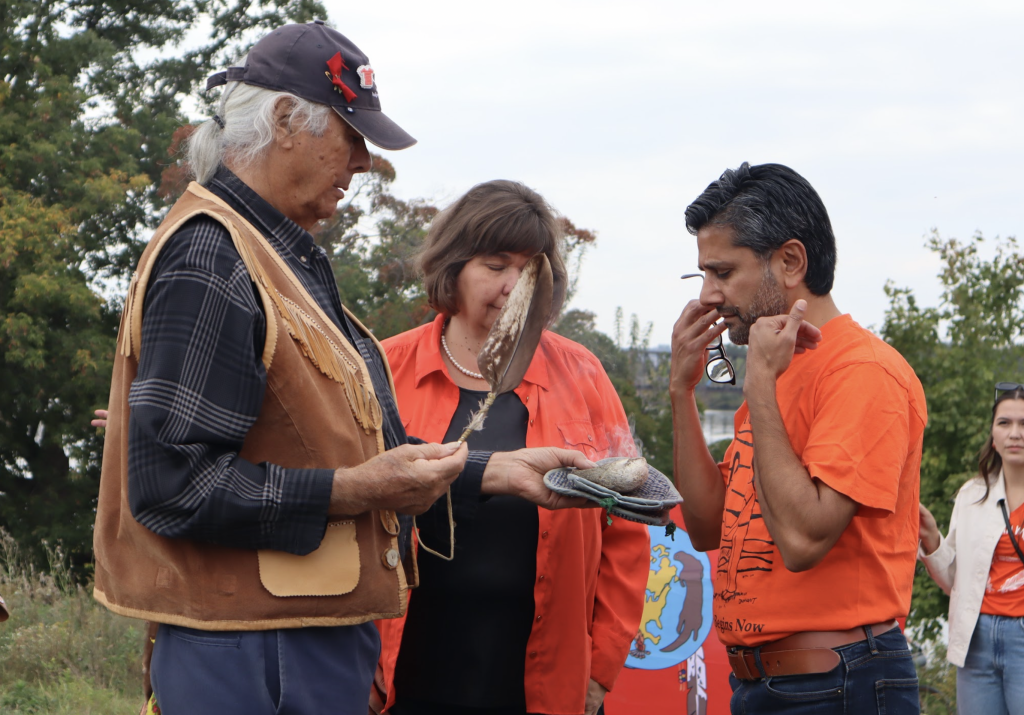
Leiper, who was at the new signage unveiling, said he was proud to see years of advocacy pay off.
“We’ve heard a lot about the role the Kichi Zibi plays in uniting the Algonquin nations in eastern Canada. The parkway is obviously intimately connected with the river. To put Sir John A. Macdonald’s name on a parkway whose function, history and geography is so intimately tied with that great river, struck me as not just sad but outright provocative,” he said. “I’m very happy to see the name changed.”
Dylan Whiteduck, Chief of Kitigan Zibi Anishinabeg, said it was a very proud moment for Indigenous people who were in attendance, and said the name change marks good progress in reconciliation. Even so, there is still a long way to go.
“It’s nice to rename streets and signs, it’s nice to rename rivers, but how do we become prosperous like the rest of Canadians? How do we generate revenue?” Whiteduck said.
“We have never surrendered this land. It’s still considered stolen. Our people inhabited these lands and shores for millennia,” he added. “There are recordings of Samuel De Champlain seeing over 200,000 Algonquins, and seeing the first one under the Chaudiere Falls.”
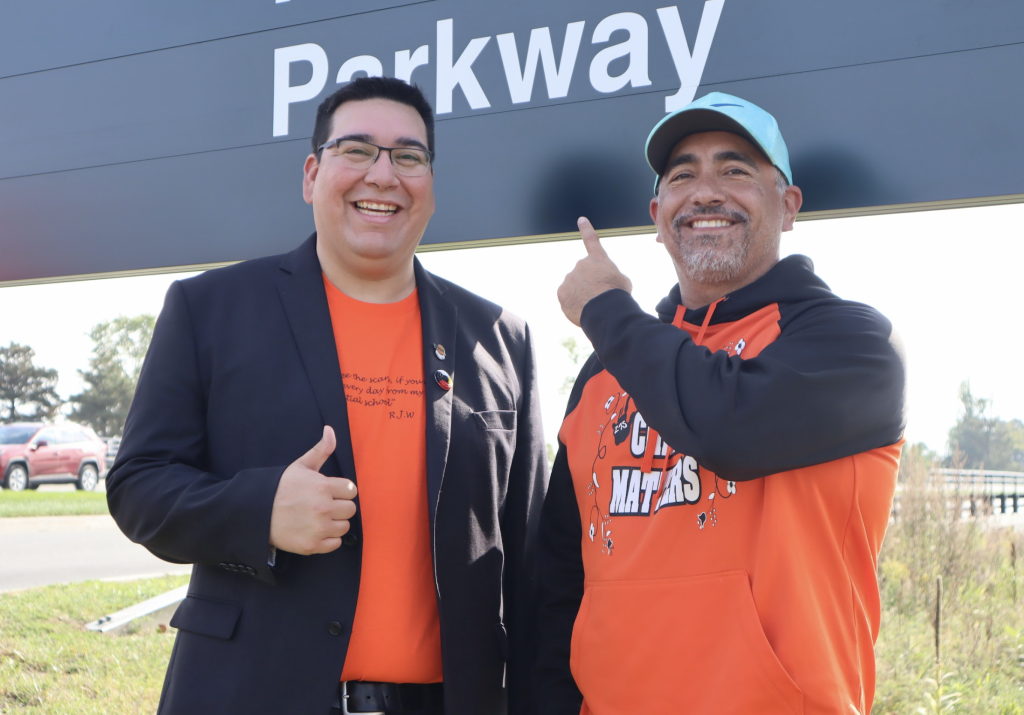
As part of generating revenue through reconciliation, Whiteduck said they are interested in developing the lands at LeBreton Flats and are looking to work with the Ottawa Senators hockey team to have an arena built at the site.
“We’d love to be part owner of the Ottawa Senators and build a stadium for them on our territory. But there is a process and consultation we will need to have with our members and all parties involved,” he said. “We do hope LeBreton Flats becomes a prosperous entity for all Canadians, citizens of Ottawa, and most importantly, the Algonquins.”
